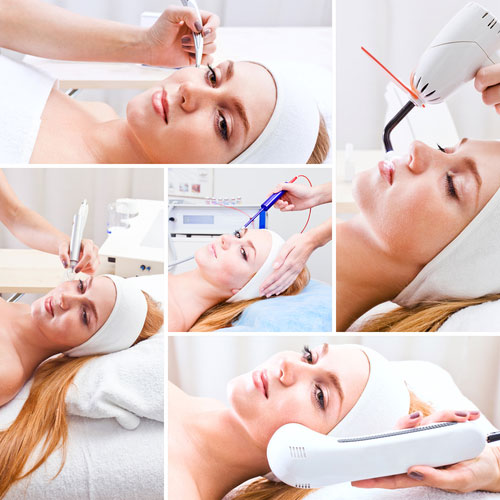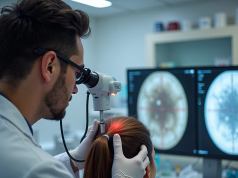Choosing a cosmetologist is an important decision, because the health of your skin and appearance depends on his professionalism. Low-quality procedures can not only fail to give the desired effect, but also harm. Therefore, the search for a good specialist should be approached with maximum responsibility. In this article we will tell you what you need to pay attention to when choosing a cosmetologist, so that you do not make a mistake.
1. Qualifications of a cosmetologist
The first thing to pay attention to is the qualification of the cosmetologist. The specialist must have a diploma of specialized education and relevant certificates confirming his qualifications. Today it is easy to find a qualified cosmetologist, but it is important to make sure that in front of you is really a professional. Check the presence of certificates and diplomas courses and trainings, because cosmetology is constantly evolving, and the specialist must be aware of new techniques.
How do you find a qualified cosmetologist?
- Make sure that the beautician is a certified professional.
- Ask questions about his or her experience and education.
- Find out how often he or she takes refresher courses.
2. work experience
Cosmetology is not only theoretical knowledge, but also practice. It is important that the specialist has sufficient work experience. Cosmetologist with experience better understands the client's needs and knows how to solve different skin problems. See how long he has been in the field and what skin types and problems he has encountered.
Benefits of an experienced cosmetologist:
- The ability to customize to your skin type.
- Experience in performing complex procedures.
- Understanding and applying the latest techniques in cosmetology.
3. customer testimonials
Customer reviews are another important factor when choosing a cosmetologist. If the specialist provides quality services, he is likely to have many satisfied customers who leave positive reviews. Study the experience of other people who have already used the services of this cosmetologist. This will help you get an objective idea of his work.
What to look for in reviews:
- Client satisfaction with the outcome of procedures.
- Feedback on the cleanliness and sanitation of the salon.
- Whether clients are satisfied with the approach and attention of the beautician.
4. Popular procedures
Pay attention to what procedures the cosmetologist offers. A quality specialist will always be able to select the necessary services depending on the skin type and client's problems. For example, one of the popular procedures is deep facial cleansing, which is suitable for solving many skin problems.
Types of popular treatments:
- A deep facial cleanse for oily skin is an effective pore cleanser that helps improve problem skin.
- Ultrasonic facial cleansing is a painless and safe procedure that is suitable for most skin types.
- Mechanical cleansing is a deeper cleansing that is recommended for black spots and acne.
5. Individual approach to the client
Every skin is unique, so a good cosmetologist should offer a personalized approach. Before prescribing a procedure, the specialist should conduct a consultation, examine your skin and suggest the most appropriate care methods. Persistent fragrances for dry skinWhether it's regular moisturizing treatments or deep cleansing, it all needs to be tailored to your personalities.
How to define a customized approach:
- The cosmetologist diagnoses the condition of the skin before the procedure.
- Questions related to your lifestyle, type of diet and skin care.
- Application of personalized home care recommendations.
6. Location and accessibility
An important role in choosing a beautician plays its location. Cosmetologist close to home or work is a convenience, especially if you plan on getting regular treatments. Look for an affordable cosmetologist nearbyto save travel time and feel comfortable.
Important locational factors:
- Proximity to home or work.
- The convenience of making appointments for procedures.
- Ability to choose a convenient time to visit.
7. Schedule flexibility
The life of a modern person is full of events, so the schedule of a cosmetologist should be flexible. Make sure that the specialist offers convenient appointment times and is ready to adjust to your schedule. This is especially important for busy people who find it difficult to allocate time for procedures at strictly fixed hours.
8. Hygiene and safety
During any cosmetology procedure, it is important to maintain high standards of hygiene and safety. A good cosmetologist always works in a clean, well-equipped room where sanitary norms are observed. Tools must be sterile and consumables must be disposable.
9. Modern equipment
Cosmetology is constantly evolving, and new technologies make procedures safer and more effective. Pay attention to how modern equipment is used in the salon. This can directly affect the quality of procedures and the final result.
10. Personal chemistry
Finally, it is important that there is personal chemistry between you and the beautician. You should feel comfortable during procedures, be confident in the specialist's competence and integrity.
Choosing a beautician is not just about finding the nearest beauty salon that will provide a good care for your skin. This is a process that requires careful attention. Make sure that the specialist has the appropriate qualifications, positive reviews, experience and knows how to offer individualized care for your skin. Only a carefully selected cosmetologist will help you achieve the desired results and maintain the health of your skin at a high level.
Equipment and cleanliness of the office
- When visiting beauty salons and cosmetologists' offices, first of all, pay attention to cleanliness. Cleanliness is the doctor's adherence to all norms of sanitation and hygiene. Clean towels, fresh air, clean bedding.
- Look around. Take note of everything. Especially if there are special disinfecting cabinets in the office. Do you notice if there are any instruments in them? If not, watch out.
- Examine all the cosmetics and other products in the office. Look with your eyes for wooden disposable sticks, with which professionals should take the cream out of the jar. If they are not, then perhaps the beautician climbs into the jar with his hands, which, of course, is unacceptable. After all, who knows with what diseases turn to the doctor for advice to his other clients.
- Pay attention to whether the beautician washed and disinfected his hands before touching you. Even better, he or she wore gloves.
Compliance with all these conditions is one of the indicators that the person who will touch your face observes the rules of cleanliness and hygiene. Remember that during procedures, the client usually lies or sits with his eyes closed. This means that the beautician is not controlled by anyone. He can do whatever he wants. He can use different makeup than the one he showed you before the procedure. He may not wash his hands or use dirty instruments. Only your observation and your thorough knowledge of the procedures from "A" to "Z" can help.
- When visiting a cosmetologist, you should not only clearly describe your desires, but also tell a detailed history of your problems. When pimples appeared, what actions you took, what tests you took, what medications your doctor prescribed you. And, most importantly, accurately describe the reaction of your skin to the treatment or care.
- It is advisable to keep your conversation in the form of a dialog. Give the doctor the opportunity to ask you questions. It is the questions that ask the cosmetologist, and will be the litmus test that will allow you to determine how much you listened carefully, how much you understood what you are telling, and, of course, determine the depth of knowledge of the doctor. After all, we were not all born yesterday.
- We can read, we communicate with others, we gather information. As a result, we are bound to have our own idea about our skin problems. It may be far from the true state of affairs. A professional will identify this immediately and try to explain your misconceptions on the spot.
- Be alert if you feel that you are not being listened to, especially if you are constantly interrupted by extraneous calls that the doctor receives from his phone, that the nurses are always poking their heads into the office with some questions. It doesn't have to be that way. You have paid money and you want to get a qualified consultation from an attentive doctor, not from someone who solves his own problems at the expense of your money and your time.
- If you have been listened to and asked qualified questions, it is now your turn to hear the treatment or treatment plan. Here you should be especially attentive and memorize everything the doctor says. In no case should you be shy or afraid to ask a question just because you don't want to look dumb and stupid. By going to the doctor - you have already proved that you are not clever, because you cannot solve your problem without help. There is no need to be shy! You should ask the doctor everything in detail: what cosmetics he will use, what waves will be tuned to the laser device, how the procedures will be carried out, what you will feel, what discomfort or pain awaits you during the procedures.
- At the end of the conversation, be sure to ask a few of the most important questions: what side effects can carry with this procedure, how long is the recovery period, what care is required for the skin after the procedure.
- Often, when we are charmed by the doctor, we jump to conclusions and agree to the procedures as soon as possible. Take your time. The first impression will soon leave you. Only the bare facts will remain. Wander around the internet, look in books, talk to people you know. Find out more about the procedure you're being offered. And most importantly, about the possible side effects. If you have even the slightest doubt, go to another doctor for a second opinion.
- First of all, find out your skin phototype. Not to be confused with your skin type: combination or oily. Skin phototype is, in a nutshell, determines what color your skin is. It is known that some procedures, especially hardware, can be harmful to swarthy skin, but white skin will tolerate them perfectly. Or vice versa.
- In addition, when you go to a beautician, you should know exactly if your skin is capable of scarring or age spots. You must have had pimples during your life, which you usually squeezed out with your hands when you were young. Of course, this should never be done. But the danger of this begins to realize when it is too late. Remember how the skin "behaved" during your life? Were "squeezing" without problems, leaving no scars, scars and pigment spots. Or is it still the case that every pimple squeezed out is a new scar or age spot. If there have been problems, it is your responsibility to let your beautician know. And see his reaction. It is known that any cosmetology procedures, which are carried out with the help of special equipment, have certain limitations in wavelength settings, etc. for different skin phototype. If your cosmetologist dismisses the peculiarities of your skin, be wary.
- One last thing. If after talking to a cosmetologist you are in doubt about something, your wisest course of action is to see another doctor to get a second opinion.
Believe me, all the riches in the world are not worth having your face disfigured. Of course, no one will do it on purpose. All problems arise not only because of the unprofessionalism of the beautician, but also because of your own fault. Do not spare money and time for preparatory work. Ask, pay for a consultation with another doctor. Only in this way you can come to the only procedure that will not harm the skin, after which there will be no scars or pigment spots. Staphylococcus aureus and how I dealt with it.







